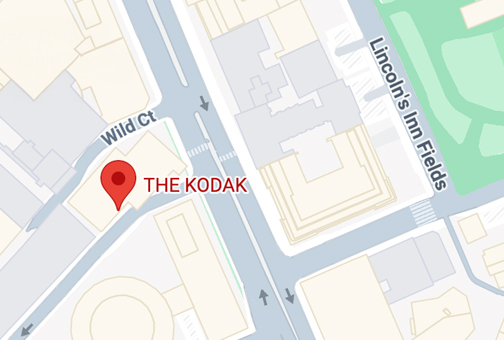Back in March, in The Drum, Samuel Scott asked “Is everything on the internet fake?” The correct answer to that question is, of course, “no.”
If, however, you read the whole article you would realise that it was a rhetorical question – and the reader was clearly being invited to respond with a resounding yes, prompted by headline-grabbing quotes from ex-CEO of Reddit, Ellen Pro: “It’s all true. Everything is fake.”
Scott unfavourably compares online measurement with “communications channels before the internet,” pointing out that radio reports listener figures that represent real human beings and print media using surveys to calculate readership. The key to the comparison was that these numbers are audited by independent third parties.
Any implication that such independence or measurement does not exist for online is factually incorrect.
"The exact percentage of fake traffic on the internet is not UKOM’s priority. Ensuring it is excluded from the measurement numbers is."
10 years ago the UK advertising and publishing industries came together to solve exactly the problem that Scott claims causes such pain today: multiple and conflicting claim, over-claim and counter-claim by self-interested businesses of audience numbers and reach capability. UKOM is owned by ISBA, IAB and AOP with representation on the board from IPA. That’s the entire industry coming together, both buy- and sell-side, to set and govern the industry standard for online audience measurement in the UK.
And we have made important progress in measuring cross-media too. UKOM endorsed data from Comscore feeds PAMCo, the print industry measurement body that replaced the NRS, to deliver accurate cross platform, print and digital audience numbers that the UK industry can use as a trusted, independent and audited source of the measurement of real people.
Scott states that “50% of internet traffic is bots,” and I agree that fraudulent traffic is clearly a problem, but that’s why UKOM-endorsed data is so important. We quantify audiences in terms of people, not browsers or machines, using a combination of panel and census data. Panels of real people on real devices. More than 100,000 of them in the UK across desktop, tablet and smartphones. The exact percentage of fake traffic on the internet is not UKOM’s priority. Ensuring it is excluded from the measurement numbers is.
"[Exaggerated and provocative statements about fake numbers] are counter-productive and factually incorrect, only adding to the marketplace confusion."
All across Europe there are industry bodies successfully running comprehensive independent measurement programmes for online. Much has been made recently of the three-year collaboration in Germany between AGF (their equivalent of BARB) and YouTube. It is, rightly, big news when YouTube gets measured by an independent industry standard. In March, for the first time, independently measured German audience numbers were released for YouTube, including total monthly audience broken down by channel, including time spent. Similar data has been available in the UK since summer 2017 when the UKOM Technical Board endorsed Comscore’s Video Metrix Multiplatform for measurement of video audiences across PC, tablet and smartphone generating monthly UK data for YouTube and its many channels.
Nothing stands still in online. Earlier this year UKOM announced an RFP for UK online audience measurement for a contract staring in 2021 to include the measurement not only of PC, tablet and smartphone, but Smart TVs and voice-activated devices too. We want to be able to measure not just streamed activity but also content downloaded and consumed offline, such as podcasts. For the first time UKOM will look to endorse a measurement for online advertising campaigns with audience verification. We are exploring the capability of measuring audiences beyond simple demographics with interest- or category-based audiences.
Samuel Scott and I share a number of frustrations with the tendency of the industry to work with some questionable data but I cannot agree with Aram Zucker-Sharff from The Washington Post when he states “The numbers are all fucking fake…all the fake shit is layered on top of other fake shit and it just compounds itself.” I can’t comment on the situation as regards the US but it is dangerous to assume this is true globally and as far as the UK and Europe are concerned, such statements are counter-productive and factually incorrect, only adding to the marketplace confusion.
"Irresponsible, attention-grabbing headlines undermine the UK and European industry work to ensure independent and objective standards."
Data is not a zero-sum game. Most UK agencies will use UKOM data, along with other sources, for their clients in the strategy, communications or media planning process. Former Director of Insight at the IPA, Lynne Robinson stated “it is essential that the data we use to make key decisions involving media investments are ‘fit for purpose’ in terms of transparency, quality and comparability…UKOM provides this all-important kitemark.” Most large UK publishers will use UKOM data alongside their own internal analytics to get a broader market perspective of their audience performance.
It is a complex market and Samuel Scott is right to highlight some of the challenges, some of which are yet to be overcome. However, the implication that online is the Wild West with no governance is misleading with regards to the UK and Europe. Steve Chester of ISBA makes the point best (and is less sweary than others): “Robust, independent, accountable audience data is vital to making decisions for and delivering confidence in advertisers’ media investments. UKOM is an essential cross-industry body [and] is vital for ensuring oversight of a continually developing fragmented channel.”
It is easy to grab the attention with “Is it all fake?” and to invite the inevitable reply of “yes.” But it is also irresponsible and it undermines the UK and European industry work to ensure independent and objective standards. Less eye-catching maybe, but perhaps more responsible would be: “Are there any trusted independent measurement standards for online?” The answer to that in the UK is also a resounding “yes.”
This article first appeared on The Drum’s website, 8 April 2019











